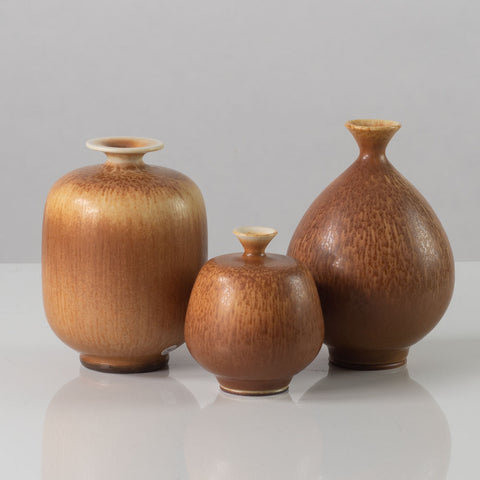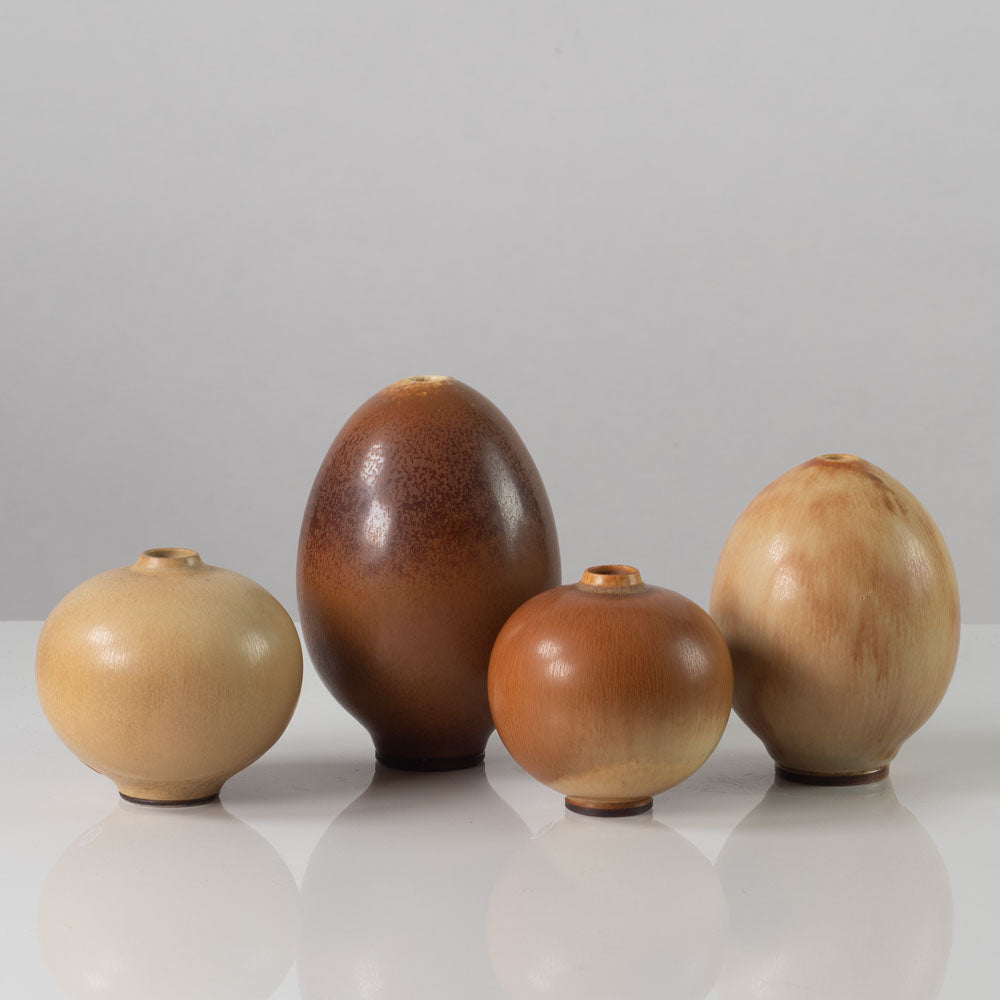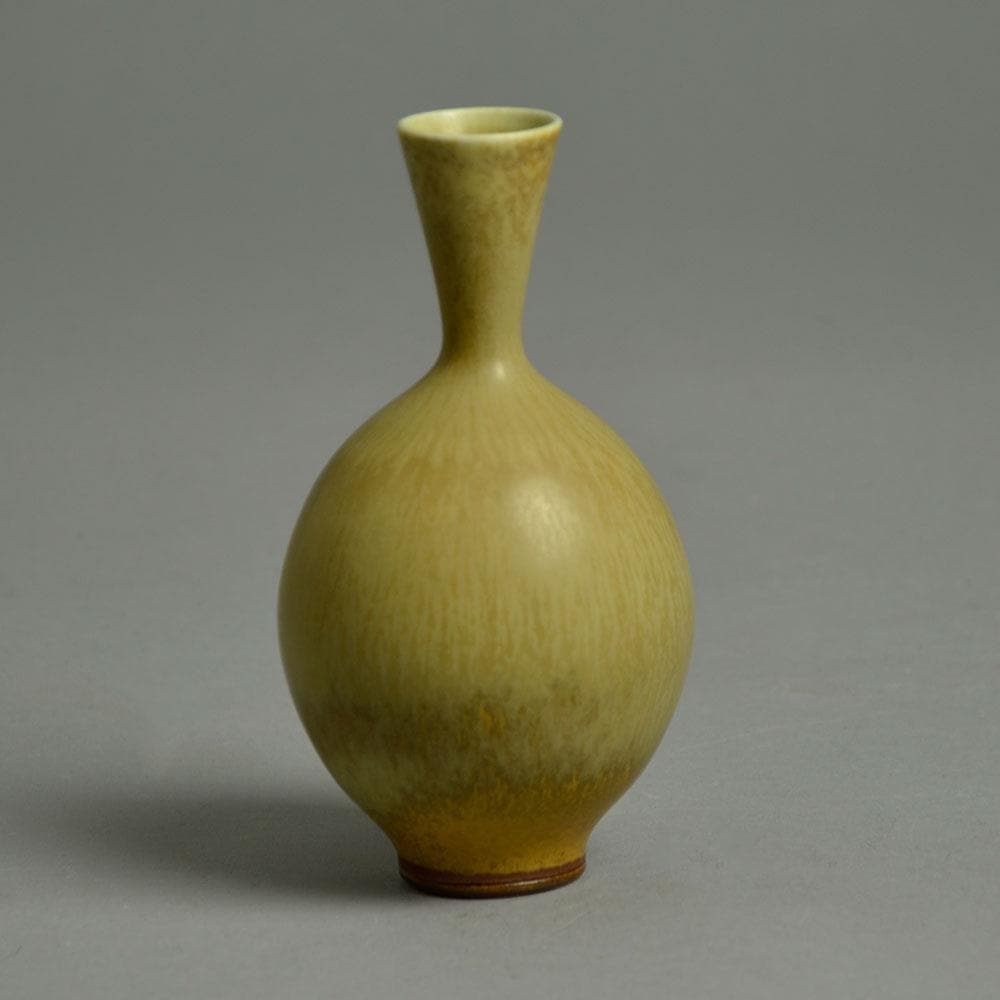Ceramics
Berndt Friberg

Berndt Friberg, c. 1960s.
Berndt Friberg was born to a family of potters in Höganäs, Sweden in 1899. He began work as an apprentice at pottery in Höganäs at the age of 13, and worked as a potter in various studios until he was 35. In 1934, he began working at Gustavsberg. He apprenticed under and worked as a thrower for art director Wilhelm Kåge, and began producing his own line of pottery at Gustavsberg in 1944. His works were shown in many solo and group exhibitions.
Because Friberg started as a thrower, rather than as a designer, his work is known for its technical perfection, simplicity of form and glaze, and attention to fine detail. He focused primarily on throwing simple but graceful forms, influenced by Chinese pottery, and monochromatic, unpatterned “haresfur” glazes. He also produced smaller ranges in patterned haresfur glazes, and glossy copper red, and blue "Aniara" glazes. All his studio work is personally thrown and signed by him and ranges in size from miniatures to large floor vases.
Berndt Friberg's pottery appears in the photographs of Robert Mapplethorpe, who was a collector, as were King Carl Gustaf of Sweden and Yves Saint Laurent. His work is represented in major museum collections including those of the National Art Museums in Stockholm, Copenhagen, New York, Kyoto, and Tokyo. He received the gold prize at the Triennale di Milano in 1948, 1951, and 1954; Gregor Paulsson Trophy in 1960; first prize at the Faenza International Ceramic Art Competition in 1965; and the Prince Eugene Medal (Sweden) in 1980. He was also represented in the Contemporary Ceramics Exhibition held in Japan in 1964.
Use tags to the left to sort by forms, color, size, etc.











